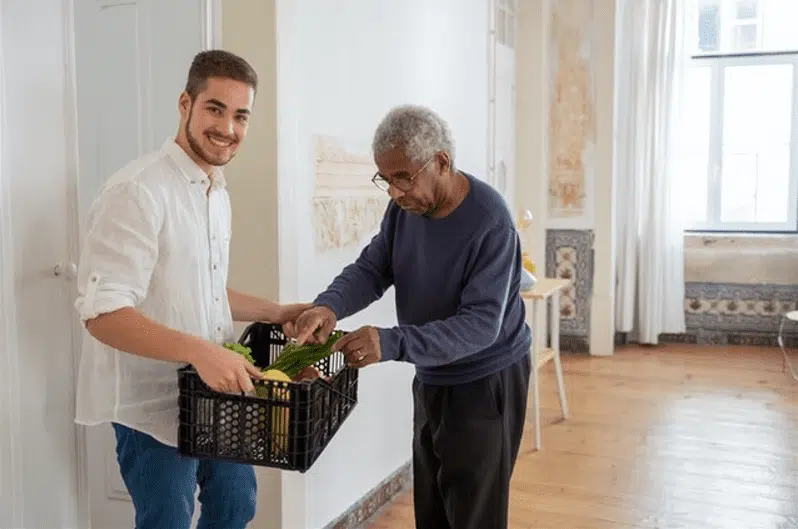Good Habits for Healthier Aging (and How Home Care Helps)
Posted in Senior Health Care Tips
Small choices we make every day can have a major impact on our overall health and wellbeing. While there are countless lists online of seemingly simple habits to develop, medical, social and psychological changes normal in the aging process can make these adaptations difficult to achieve.
The following blog outlines classic healthy habits found on most elder-focused blogs, challenges you may experience pursuing these goals, and how a home health care service can make these changes more attainable.
-
Stay active with light exercise
Balance, physical fitness, and mobility are all classic “use it or lose it” traits that can be maintained through regular light exercise.
Why it’s hard: Getting motivated to go outside and work up a sweat can be a challenge, and concerns about over-exertion can make staying on the couch feel safer.
How home care helps: There’s a reason gyms offer fitness classes as a group activity – the motivation of another person can be a big push to act on your fitness goals. Further, seniors with safety concerns can feel more comfortable exerting themselves because they know they have a spotter nearby to offer help.
For example: If a short walk suddenly starts feeling too strenuous, having a companion who can notice your exhaustion and help you catch a cab or bus home can be the difference between a good workout and a fall hazard.
-
Eat healthy with nutritious meals
A healthy diet ensures your body has the right mix of nutrients to sustain a strong immune system, heal from injuries, and maintain good cognitive health.
Why it’s hard: Grocery shopping, meal preparation, and cleanup can be daunting tasks to complete alone. Furthermore, not having company over a meal can make it harder to find the motivation to maintain a regular meal schedule.
How home care helps: Having a second person in the home can make all the difference when it comes to eating regular, healthy meals. Whether it be recommending a new recipe, helping with difficult prep tasks, cleaning dishes, or simply having some company at the table, a home caregiver can make all the difference at meal time.
Additionally, having someone help carry groceries from the supermarket means you can purchase larger quantities of items, lowering your number of trips and making meal prep more affordable.
-
Get good, regular sleep every night
Countless studies show that getting a restful 8 hours of sleep every night is critical to good cognitive health as we age and ensures you have the energy to make the most out of every day.
Why it’s hard: It can be easy to lose track of time when living alone, and falling asleep on the couch or in your favorite chair can lead to restless sleep and painful cramps in the morning. Also, the stress of unfinished chores and errands can make for long nights of staring at the ceiling.
How home care helps: Having a second person in the home makes it easier to keep track of your self-set bedtime. Also, if you do catch yourself nodding off in a chair, having someone to assist you to your bed can greatly reduce late-night fall hazards. Finally, an in-home caregiver can take care of any household chores you may have missed during the day, giving you the peace of mind to fall asleep soundly.
-
Stay socially engaged with friends and family
Social isolation is one of the biggest threats to mental and emotional health in the elderly community. Staying in touch with friends and family remotely or in person can help ground you to those important in your life and give you the motivation to take the best possible care of yourself.
Why it’s hard: Receding from social groups and engagements can be caused by numerous factors, like restricted mobility making it harder to get out, embarrassment about physical or cognitive changes, or a simple lack of energy to arrange a hang out.
How home care helps: In addition to helping make calls to arrange meetups and assisting in traveling to see others, a home health caregiver can also be a great source of ongoing companionship themselves. Many home health care clients form strong bonds with their caregivers over time, and even a chat over morning coffee can help brighten a day.
It’s easy to make a list of recommendations and offer advice, but actually acting on these frequently-cited tips can be difficult when living alone or managing a chronic condition.
SelectCare has helped New Yorkers live happier, healthier lives for more than 35 years and we are eager to learn how we can help you and your loved ones.
If you are struggling to make positive changes at home, or worry that a loved one is struggling to live their best life, call SelectCare today or request a free in-home care guide to learn more.
